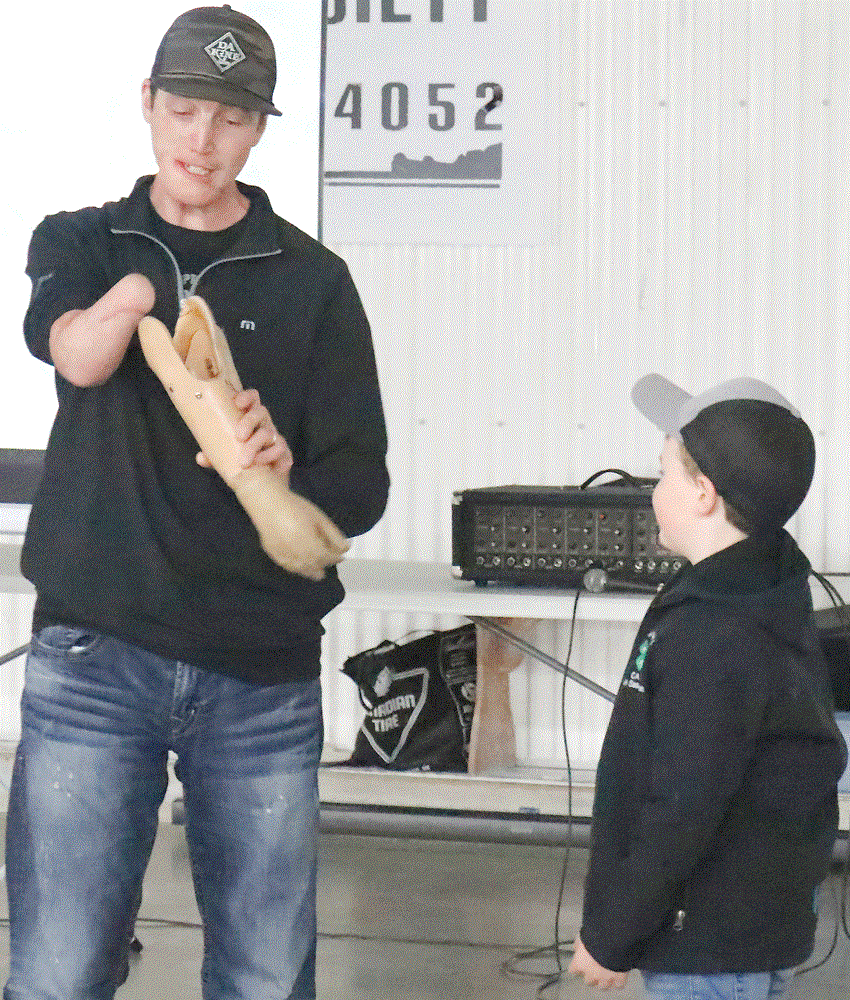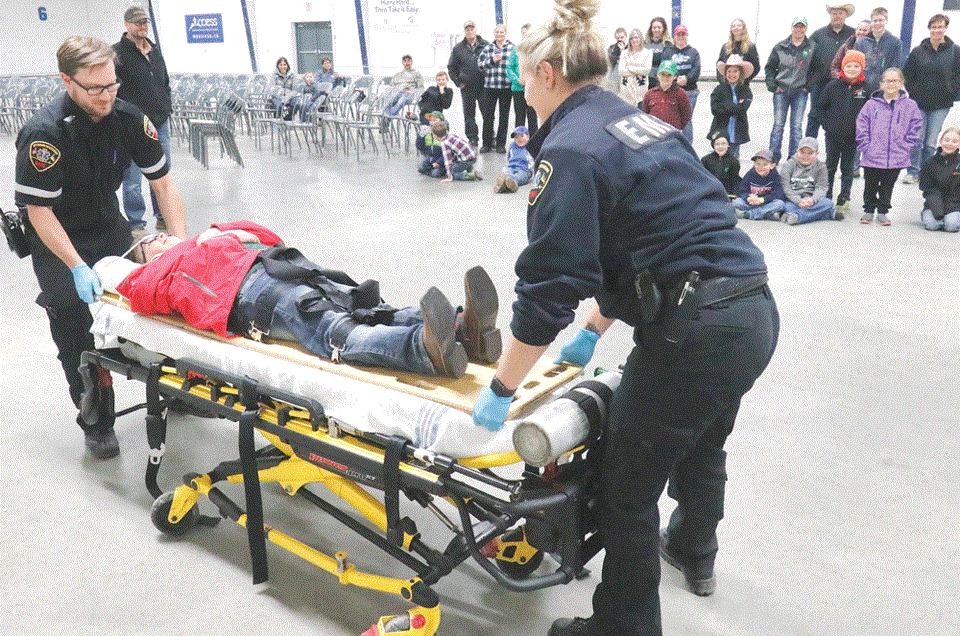It’s not enough to be aware of dangers on a farm or work site, as there must be action to prevent deaths and injuries.
Curtis Weber, the keynote speaker for the 4-H Farm Safety Day held at the Weyburn Curling Rink on Saturday, is a survivor of a horrific electrocution accident on the site where a work crew was preparing to build steel grain bins.
The day-long event was organized by the Cymri 4-H Club, and was attended by a number of 4-H clubs from around the southeast region, with sessions provided on different aspects of farm safety. The day ended with a demonstration mock accident, put on by first responders and two members of the Weyburn Emergency Medical Services.
As Weber told the 4-H members, one bad choice led to over seven years of surgeries and recovery, after losing part of his right arm below the elbow, and part of his left leg just below the knee. His body endured 14,400 volts in three cycles that literally threw him around the hopper bottom, and he ended up with third and fourth-degree burns to 60 per cent of his body, with burns to a lesser degree on the remaining 40 per cent of his body.
Weber was a 17-year-old on the work crew on only his third day of work when the incident occurred. As he noted, he was not inexperienced, in spite of his age, as he grew up with his father’s grain bin-building business, but this was the first time he had a job outside of the family business.
“We noticed approaching the farm there was a low-hanging power line,” said Weber. “We were going to work on a hopper bottom, but all the materials for the bin were on the other side of the line. We decided to use a picker truck.”

As he was just 17 years old on a crew of strangers who were all older than him, he felt uncomfortable in raising concerns or questions about what they were going to do, and he believes that this choice led to the situation where he was in an unsafe position with his hands on the hopper bottom when the picker touched the overhead line.
“We need to think about how approachable we are for our kids,” Weber told the parents, and for the kids, he said they should not be shy if they ever have concerns or questions about the safety of a situation on the farm or a work site.
Weber spent a total of 6 1/2 months in hospital, including the first six weeks in a coma, with just over 30 operations over a span of 5 1/2 to six years afterward.
He didn’t realize he was as badly hurt as he was until the day after waking up from his coma. His mother came in and saw him. The look in her eyes, and her question to him, “Do you know where you are?” caused him to first realize he had sustained some major injuries.
“That was the first time I looked at my right arm, and I remember thinking in that moment, I wasn’t scared or anything. I was thinking, ‘at least it was my right arm’ as I played left-handed in hockey. That’s the first thing I thought of,” said Weber.
During his recovery, NHL legend Gordie Howe came and visited him because he had heard of a patient who had had plans to go play junior hockey one day.
“He came and hung out with me. That was one of the best days of my life, telling stories and signing autographs. There was a lot of support for me all the way around,” said Weber, adding that today he’s probably just as active as he was at 17, as he still goes hunting and fishing, and travelling all over the world telling his story.
One of the children asked him when he lost his arm, and Weber said this was a very good question, as he didn’t lose it right away when he was electrocuted.
“The burns kept getting worse and worse. It was probably several weeks before they took it off,” said Weber, noting this happened because it was a severe electrical burn.
He was also asked about how hard it was to take his prosthetic arm and leg off, and for each limb, he had a different 4-H member come up and help him as he explained how the prosthetics work.
Now, Weber spends a lot of his time doing motivation and safety seminars with schools and companies as he passes on his story about how this accident occurred, and how the culture of safety needs to be embedded into how farmers, workers and employers think.
“It’s not good enough to recognize that there’s a hazard, you have to act accordingly. Hazards aren’t going to go away,” said Weber.



.png;w=120;h=80;mode=crop)
